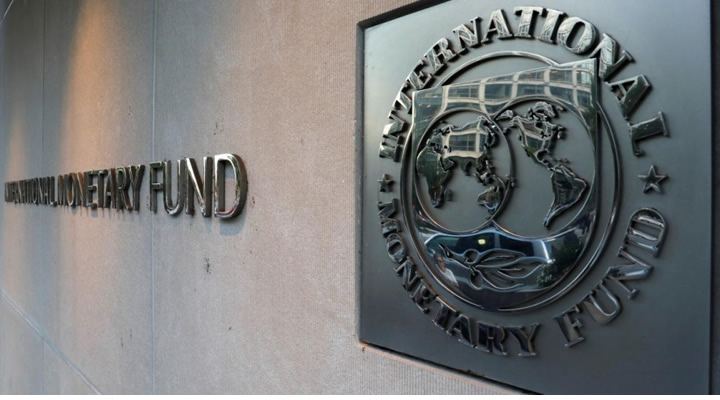Following the International Monetary Fund’s upward revision of Nigeria’s 2025 GDP growth forecast to 3.40 per cent from 3.0 per cent, business sentiment across the country is showing renewed optimism.
Analysts say the improved outlook, driven by stronger oil output, a robust services sector, and easing inflation, is boosting investor confidence and could translate to lower borrowing costs for businesses.
The IMF also reviewed the growth rate for 2026 to 3.20 per cent from the previous estimate of 2.70 per cent.
Analysts at Meristem in their weekly report said that this improved forecast already signalled improved sentiments and increased confidence in Nigeria’s economic direction.
“This growth upgrade is underpinned by notable improvement in key areas of the domestic economy, including improved oil output, a more robust services sector, and progress on the several macroeconomic reforms implemented by the government recently. The IMF also noted the increase in local refining capacity and its contribution to easing the pressure on the foreign exchange market. Additionally, the recent GDP rebasing revealed signs of recovery in non-oil sectors, further supporting the upward revision.
“We expect the IMF’s upward outlook for economic growth to be cautiously optimistic as reform policies are starting to yield results in the macroeconomic environment; however, underlying fiscal risks remain as oil trades below the $75.00/bbl benchmark. In the near term, the revision will boost investor sentiment and strengthen policy credibility.”
The IMF’s July 2025 edition of the World Economic Outlook, which marks the second revision of the global growth forecast this year, also coincided with the release of the rebased GDP data for Nigeria and the Q1:2025 GDP growth of 3.1 per cent year-on-year vs. 2.3 per cent in Q1:2024 under the newly rebased series. The Q1 growth signalled strong non-oil (+3.2 per cent) and oil (+1.9 per cent) sector performance, with the services sector up 4.3 per cent y/y, thanks to the uptick in the Financial & Insurance (+15.0 per cent), Transportation (+14.1 per cent), and ICT (+7.4 per cent) sub-sectors, while the industrial sector rose to 3.4 per cent y/y. On the other hand, the agricultural sector experienced a 0.1 per cent growth owing to the 16.7 per cent contraction in the livestock sub-sector.
Afrinvest analysts noted that recent gains in price and currency stability may have supported the IMF’s improved outlook for Nigeria. For instance, headline inflation eased for the third consecutive month to 22.2 per cent in June, the lowest in six months. Notably, the monthly inflation trended below 2.0 per cent throughout Q2 against prior prints above 2.0 per cent for more than a year. On the currency front, the naira closed July at N1,533.55/$1.00, a modest 0.1 per cent year-to-date depreciation relative to the sharp 38.8 per cent decline over the corresponding 2024 period.
They also argued that higher crude oil production (ex-condensates: +13.4 per cent y/y to average 1.47 mbpd in H1:2025; with-condensates: +10.9 per cent y/y to 1.70 mbpd) alongside a recent uptrend in Brent price (from as low as $63.12/bbl in April to $71.78/bbl in July) could have supported the case for Nigeria.
“In all, the IMF’s revised growth forecast of 3.4 per cent for Nigeria broadly aligns with our earlier projection of 3.3 per cent for 2025. Despite the fragile agricultural performance in H1, the services sector should remain a pillar for sustained domestic resilience and steady momentum. As noted in our previous macro update, downside risks persist and are sustained by structural challenges in agriculture, tight credit conditions, escalating debt levels, and volatile global fabric, as the US vs. world tariff war spills into H2. Nonetheless, these risks are counterbalanced by improving domestic macro fundamentals from reform efforts and sector-specific tailwinds that should support resilience,” stated the market report.
Cowry Assets Management Limited, in their report, projected that for Nigeria and other emerging markets, the combination of softer global inflation, a weaker dollar, and modest global growth momentum may provide a window of opportunity to stabilise macroeconomic conditions and attract foreign capital flows, provided domestic reform momentum is sustained.
Analysing the impact of the forecast upgrade, the experts at United Capital noted that with renewed investor interest, banks may feel more confident lending to businesses and individuals, which could support entrepreneurship, housing finance, and small businesses.
Specifically for businesses, United Capital affirmed that lower borrowing costs may become a reality.
“With reduced country risk and improved credit ratings, businesses may be able to access funding at lower rates. The positive outlook encourages businesses to expand production capacity, boosting revenue and profitability. If the naira strengthens as projected, import-dependent sectors like manufacturing and pharmaceuticals could benefit from lower import costs, supporting improved profit margins,” they said.
United Capital Research, however, believed that a 4.1 per cent GDP growth rate, or higher, is achievable in 2025 if key structural challenges are addressed. These include resolving insecurity in major food-producing regions and reviving the electricity sector by tackling legacy debt issues. And sustaining ongoing reforms in the oil and gas sector.
“If these issues are efficiently resolved, Nigeria could be on track for strong, steady growth and lower inflation, creating long-term prosperity for the country,” the report indicated.















